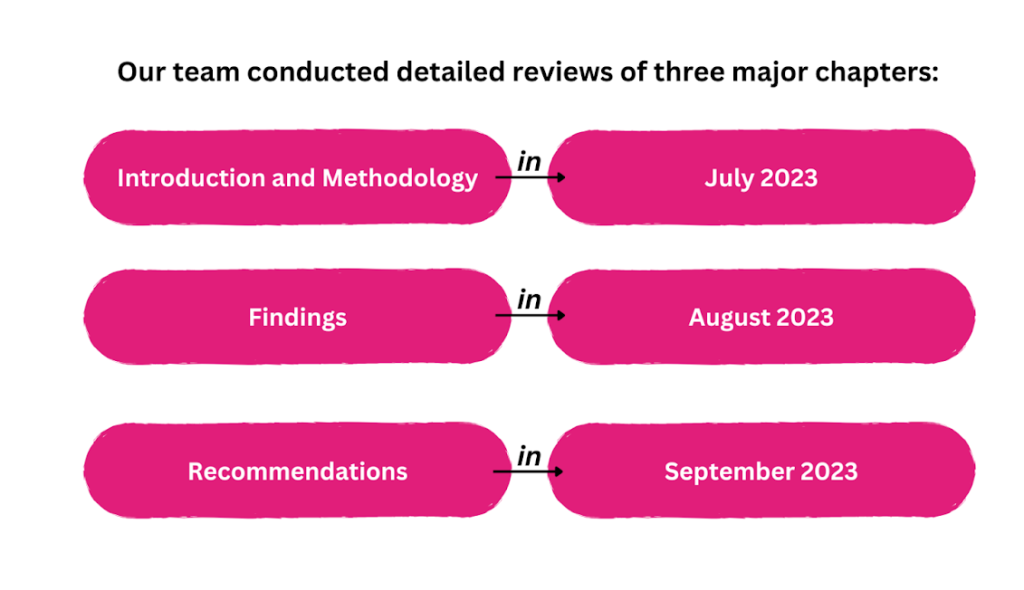In July 2023, we embarked on a transformative partnership with the Global Plastic Action Partnership and KPMG to address the critical gaps in gender and social inclusion within Maharashtra’s waste management sector. Over three months, our team provided comprehensive guidance on developing research methodologies, conducting stakeholder consultations, and crafting recommendations that would shape inclusive policies. This collaboration represented a significant step toward recognizing and addressing the unique challenges faced by marginalized communities in the waste management ecosystem.
Project Overview
The Global Plastic Action Partnership (GPAP), in collaboration with the World Economic Forum and the Government of Maharashtra, India, undertook a comprehensive social context assessment of the plastic waste management sector. We served as key advisors in this crucial initiative, bringing our expertise in gender equality and social inclusion (GESI) to shape the research methodology and analysis.
Gender sensitivity in waste management is particularly crucial as women waste workers face unique challenges, including economic deprivation, physical safety concerns, and limited access to resources. Despite comprising a significant portion of the workforce, their contributions often go unrecognized, and their specific needs remain unaddressed in policy frameworks.
Our partnership focused on developing a robust GESI-focused research framework, guiding the design of information gathering tools, providing expert analysis of collected data, and supporting the report development process. Throughout the project, we worked closely with multiple stakeholders, including waste workers, civil society organizations, and government representatives, to understand and address social exclusion in the plastic waste management sector.
Snapshot of the Partnership
From July to September 2023, our partnership achieved significant milestones through a structured and collaborative approach. The project began with intensive workshops on GESI principles and their application in research processes. We then moved through multiple phases of framework development, stakeholder consultations, and report writing. Each chapter underwent thorough review by multiple experts, ensuring comprehensive coverage of social inclusion aspects.

The iterative review process involved multiple stakeholders, including specialists in gender equality, social inclusion, and waste management, ensuring a holistic approach to the research.
Our Impact
The partnership yielded substantial impacts across multiple dimensions. Through stakeholder consultations in Mumbai, Pune, and Aurangabad, we gathered crucial insights into the challenges faced by waste workers from marginalized communities. Our enhanced research methodology captured previously overlooked aspects of social exclusion, leading to more nuanced understanding of barriers faced by women waste workers, including limited access to social security, healthcare, and decision-making processes.
The framework we developed has already influenced how organizations approach gender and social inclusion in environmental initiatives. It has helped identify critical gaps in current policies and practices, particularly regarding women’s participation in formal waste management systems and access to benefits. The consultations reached over 100 stakeholders, including waste workers, civil society organizations, and government representatives, resulting in comprehensive data that informed policy recommendations.
Our partnership significantly enhanced the study’s ability to capture and address social exclusion issues in the waste management sector. The final report successfully highlighted key barriers faced by waste workers, particularly women and marginalized communities, while providing actionable recommendations for improvement.
Through this collaboration, both organizations strengthened their capacity to integrate GESI perspectives in research methodology, develop inclusive data collection tools, create actionable policy recommendations, and address intersectional challenges in waste management. The partnership demonstrated the value of combining environmental expertise with social inclusion frameworks.
Our Key Takeaways
This partnership has demonstrated the essential role of gender and social inclusion frameworks in environmental initiatives. Our methodical approach to reviewing research materials, which included structured feedback loops and multi-stakeholder consultations, ensured that diverse perspectives were meaningfully incorporated into the final recommendations. We established clear metrics for evaluating social inclusion aspects, developed targeted questionnaires for different stakeholder groups, and created detailed guidelines for implementing GESI principles in waste management policies.
A just transition demands that we see the climate crisis as embedded and influencing several contextual issues. Working with Maharashtra GPAP and allied partners like the World Economic Forum and KPMG we were able to deliver a high quality gender and social justice assessment and analysis that has the potential to enhance the success rate of managing plastic supply chains more sustainably while ensuring protections for those most affected.
Vandita Morarka, Founder and CEO of One Future Collective
Looking ahead, this project has established a strong foundation for future work in inclusive environmental policy development and implementation. The frameworks and methodologies developed serve as practical tools for integrating social inclusion considerations into environmental initiatives, particularly in addressing the unique challenges faced by women and marginalized communities in the waste management sector.
